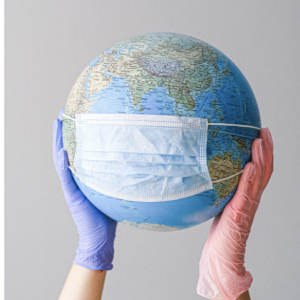Your Best Shot: What’s Next, Now That You’ve Been Vaccinated?

Your Best Shot: What’s Next, Now That You’ve Been Vaccinated?
March 31, 2021
If you’re one of the lucky 64% of adults over 65 who’ve received at least one dose of your COVID-19 vaccine, congratulations. Even with just one dose in your arm, new data shows that 2 weeks after the first dose the vaccine is already 80% effective, and 2 weeks after you’ve received both doses, your protection inches up to 90%- protecting you against both serious illness and, it appears, against actually becoming infected at all. This news, coupled with the increasing acceptance of the vaccine, even by those previously skeptical or resistant, is a bright spot in the COVID landscape. And for an updated overview of COVID and vaccine efforts among older adults, check out the latest video from Dr. Leslie Kernisan, of Better Health While Aging (including her advice, starting at 45 minutes into the video, of what you can do now that you’re vaccinated).
So, for many, that is the question: What can I do now that I’m vaccinated? As you may have guessed, vaccination will not bring you back to “normal” or whatever life you led pre-pandemic. For that, we have a long way to go. The CDC has issued new and evolving guidelines about activities you can engage in once vaccinated, depending upon the type of activity, the number of people involved, whether or not others are also vaccinated, and additional factors. The reality is, for most of us, getting back into “circulation” will be a slow and uneven process- one filled with mixed-emotions and certain levels of risk. As psychiatrist Robert Klitzman has commented, there is a complex psychology when it comes to thinking about safety, and our brains tend to separate issues into black and white rather than deal with the ambiguities of the situation.
Right now we have a lot of individual unknowns when we venture out, as well as larger societal unknowns about the direction of the pandemic, despite the good news just highlighted. On an individual level, science journalist Tara Haelle recommends that you do a personal risk assessment depending upon the activity you want to pursue. Among the questions you need to consider: What is my personal comfort level for risk-taking? Where do I want to go? For how long? Who else will be there? Are they vaccinated or not (and how will I know)? Given the unevenness of vaccine efforts among different populations and regions in our country (let alone around the world), there are real questions as to how safe you will be, even if you’ve received the vaccine. In particular, when considering travel, experts recommend you still ask yourself why you want to travel– is the risk you will be taking worth the importance of the trip (and you may in fact decide that seeing a loved one after a year apart is worth the risk).
But what are the larger unknowns about which you have no control? As Federal COVID guru Jeff Zients acknowledges, “There is a case for optimism, but there is not a case for relaxation.” We know that case numbers and hospitalizations are rising in many parts of our country and in essence, there is a race going on between how quickly we can vaccinate our population versus how quickly mutant variants will spread that may or may not be stopped by our current vaccines. Or, as another expert analyzes the situation, “If we think of COVID-19 as a wildfire- and it surely spreads like one- we have failed to extinguish it. We still have fires burning all over the country.” In fact, with estimates that we will need 80% of our population vaccinated or with natural immunity from being infected, experts warn we are unlikely to reach herd immunity – perhaps ever- and will instead need to rely on quick and comprehensive testing around the country, including the ability to analyze the specific variant causing the infection. And, in fact, it’s now been reported that scientists are researching booster shots, with the expectation that whatever immunity is incurred from the current vaccinations will not last forever and may not be sufficient to fight off variants. Especially given the fact that much of the world has not yet even had access to existing vaccines, experts anticipate that vaccine-resistant mutations will inevitably begin to appear and that new vaccines may be necessary within a year. Bottom line? Your vaccination will provide you with a strong measure of protection for the moment, but we are not yet near the end of this story.







